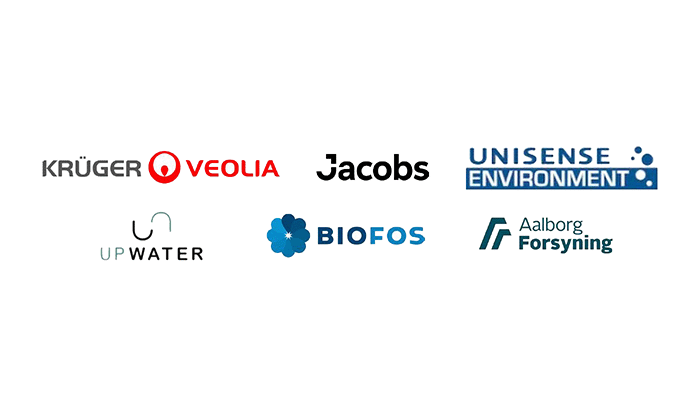Innovation to bridge critical gap in N2O regulation enforcement in wastewater sector

A consortium of strong industry leaders — Krüger, a subsidiary of Veolia, Jacobs, Unisense Environment, Upwater, BIOFOS and Aalborg Forsyning — has united to transform nitrous oxide (N2O) emissions monitoring in wastewater treatment plants.
This groundbreaking initiative, dubbed the “N2O Mobile” project, is supported by the Danish Environmental Technology Development and Demonstration Program (MUDP) and comes at a critical time as Denmark prepares to implement the world’s first N2O emissions regulation in 2025.
The Danish Environmental Protection Agency’s upcoming regulation will set a limit value for N2O emissions from the biological wastewater treatment at plants of 30,000 PE and above. However, the industry currently lacks a robust method to accurately estimate and validate plant-wide N2O emissions — a crucial requirement for effective regulation implementation. As similar initiatives emerge globally, this project addresses an urgent industry need.
The project’s core objectives include:
- Developing an innovative mobile testing system that combines two continuous measurement technologies for comprehensive N2O detection.
- Conducting intensive measurement campaigns at selected wastewater treatment plants to establish baseline emissions.
- Creating a standardized approach for estimating plant-wide baseline emissions, laying the foundation for an accredited measurement method for regulatory compliance.
This project provides the missing link in effectively reducing this potent climate gas. By developing a standardized method for determining plant-wide N2O emissions, the project partners are enabling more effective regulation and significant reductions in greenhouse gas emissions from wastewater treatment, which is vital to reduce the impact of climate change.
Global impact
The project brings together leading expertise from across the international water sector. It builds on Krüger, a subsidiary of Veolia, and NIRAS’s recent work on evaluating N2O limit value implementation in Denmark, while incorporating Jacobs’ significant contribution to N2O research both in the UK and through global initiatives. The findings will not only deepen understanding of baseline nitrous oxide emissions from wastewater treatment plants but also provide valuable insights for developing regulatory frameworks worldwide.
Collaborative expertise and contribution
Krüger A/S, a subsidiary of Veolia
Krüger A/S, a subsidiary of Veolia — the world leader in water technologies — has well-established expertise in water treatment, wastewater treatment and soil remediation in Denmark. Their core business activities in relation to N2O encompass specialized consultancy services and the optimization of wastewater treatment plant operations through advanced online control systems, with a strong focus on reducing greenhouse gas emissions. As part of Veolia’s GreenUp strategic program, which aims to accelerate ecological transformation, Krüger’s work on N2O reduction directly supports the group’s global climate commitments. Through substantial investments in research and innovation, including various MUDP projects, Krüger has developed comprehensive expertise in N2O management, bringing this valuable knowledge to the project.
Jacobs
Jacobs, a leading science-based consulting and advisory company with almost 45,000 employees, is a leader in the global water sector. Over the past five years, Jacobs has spearheaded N2O-related initiatives in the U.K., co-leading the U.K. and Irish Process Emissions Community of Practice alongside Royal HaskoningDHV. Jacobs is working with the U.K. Department for Environment, Food & Rural Affairs to design a national monitoring programme for N2O and CH4 in England and Wales. Additionally, Jacobs supports global efforts, such as leading the Water Research Foundation (WRF) project 5251, in collaboration with 25 utilities across the world.
Unisense Environment
Unisense Environment launched the world’s first industrial N2O Wastewater Sensor in 2014. The sensor enables WWTPs to optimize the wastewater treatment process and effectively measure and document nitrous oxide emissions with reliable, real-time N2O data. In this project, Unisense Environment will validate emission calculations, contribute to developing standardized quantification methods, and use the insights to guide global customers while advancing their N2O monitoring solutions.
Upwater
Upwater’s core business related to N2O is emissions off-gas monitoring and optimization. Currently, Upwater has been mainly active in Switzerland in projects with a dozen WWTPs. Typical projects cover 1-year monitoring campaigns and permanent installations of the off-gas monitoring systems. In this project, Upwater aims to test their current system under full-scale conditions in other European countries.
Aalborg and BIOFOS utilities
Both utilities have for a long time been the frontrunners in the industry. In this particular project, they will contribute to knowledge development while also delivering unique operational and process expertise about wastewater treatment plants. This will create synergy and make the project and knowledge building attractive and realistic for other utilities.
